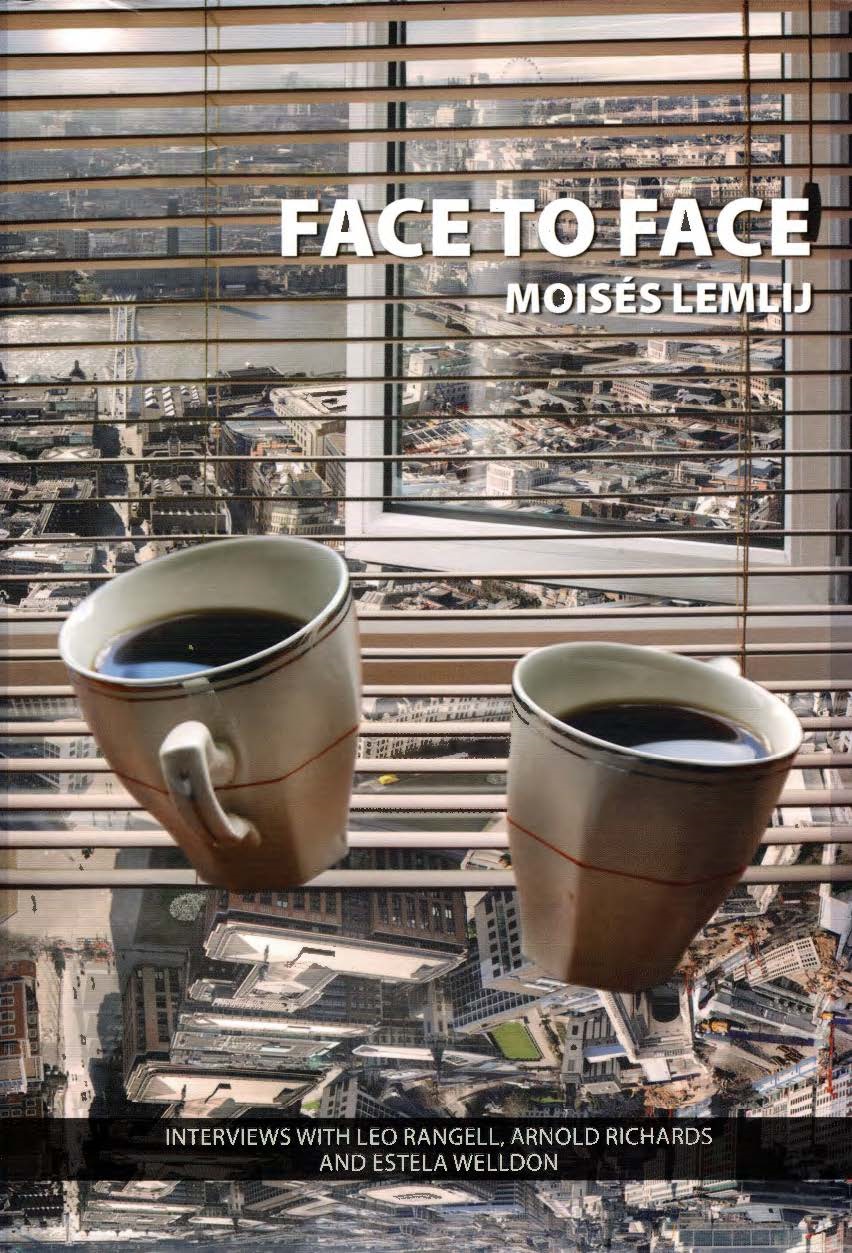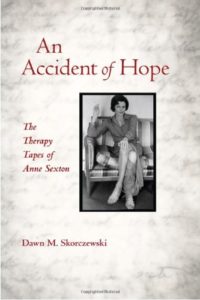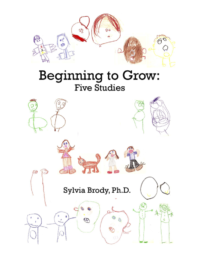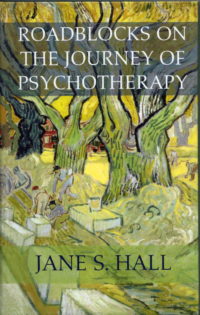Face to Face: Interviews with Leo Rangell, Arnold Richards, and Estelle Weldon Interviewed by Moises Lemlij
$35.00
ISBN: 978-1-949093-58-2
From the Introduction by Moises Lemlij:
I owe the idea of publishing this book to my wife, Mimi. After reading Philip Roth’s interviews with several writer friends in Shop Talk, she suggested that I conduct similar interviews with psychoanalysts from different countries and schools of thought, in which they could talk about their lives, their professional careers and their ways of understanding psychoanalysis. The more I mentally reviewed the number of interesting friends and colleagues I could interview, the more enthusiastic I was about the idea. In that first moment, it seemed a relatively simple adventure. Gradually however, complications began to appear: from whom to interview, to what order and how to coordinate the itinerary of my trips for professional or personal issues with the agendas of my interviewees, to how to coordinate the process of recording, transcription and editing of the interviews, many of which would have to be translated before being published. Nonetheless, I fully immersed myself in this project which has spanned several years and during which time I have been able to count on the constant encouragement of Mimi and the support of my collaborators Dana Cáceres and Pedro Cavassa.
During the first two years I spent time conducting interviews with colleagues from different continents as I met them on my trips. It became clear that the interviews would require three or four long sessions and considering distance and language, the most practical plan of action was to complete a first volume of interviews with Latin American psychoanalysts. In the next couple of years that followed, I planned some trips with the exclusive purpose of meeting with essential personalities and I devoted my efforts to finishing the transcription and editing of their interviews. This allowed me to complete and publish the first two volumes of Face to Face in Spanish in 2011 and 2017, respectively.
As the reader will appreciate, I did not have a list of structured questions going into the interviews, I allowed the ‘yarn’ of the conversation to unravel naturally. It is also evident that the tone, rhythm and content of our conversations bear traces of the history and characteristics my relationship with the interviewees, which I would like to now briefly summarise.
I had already heard of Leo Rangell and read some of his work when I met him for the first time in Lima in the late 1970s. I lived in London then and while on vacation in my hometown I took the opportunity to attend a few seminars offered by Leo. At the time, he was a member of the committee appointed by the International Psychoanalytic Association (IPA) to sponsor the psychoanalytic study group that gave rise to the Peruvian Psychoanalytic Society. We had a great connection and we continued to keep in touch. After a while we started seeing each other regularly over several years, at the meetings of the Executive Council of the IPA. He attended first as Honorary Vice-President and then as Honorary President, and I was there initially as Latin American Secretary, then as Vice President and finally in the role of Treasurer. On such occasions we were always able to get away for a while to catch up and talk about different topics, particularly about psychoanalytic theory and institutional politics, coinciding on many thoughts. I also had the privilege of him accepting my invitation to give the opening speech of the International Conference ‘At the Threshold of the Millennium’ sponsored by the IPA and UNESCO that I organized in Lima in 1998.
Needless to say, Leo was one of the first people that came to mind when I thought about who I should interview. I took advantage of the opportunity to stay a few more days in Los Angeles to interview him when I was invited to participate in a congress of the Peruvian American Medical Society, an organization that brings together 1,500 colleagues. Leo recommended that I stay at a hotel near his home, and he would arrive to collect me driving his car even though he was 97 years old by then. That first day he took me out to eat and followed our meal with a guided tour of the homes of his notable neighbors -including the late Marylin Monroe- before we went to his house. We spent four unforgettable days talking together. A few months later, I was very saddened by the news that he had died. His death also meant that he was unable to review the transcription of our conversations, and/or complete some of the passages or correct some of the names mentioned, which made the task of editing difficult and lengthy.
One of the Latin American psychoanalytic personalities that I could not overlook interviewing and that I have also included in this first volume in English, because most of her career has been carried out in England, is Estela Welldon, my professor, colleague and dear friend who Mimi and I consider part of our family. I met her in London in the mid-1970s, when we were both at the Portman Clinic, a center of excellence for the psychoanalytic treatment of sexual disorders and antisocial behavior. I was still at the training level and had to report on my work to Estela, with whom I learned so much discussing cases. It was then that the very close professional and friendly relationship that has lasted until today began. She has come to Peru many times, where she has a large number of followers who are interested in developing her ideas on female sexuality and perversions. In addition, I have been invited by her to more than one congress of the International Association of Forensic Psychotherapy, an organization she founded and of which she is the Honorary Life President. We meet in London a few of times a year now as Mimi and I travel regularly to visit our daughter and our granddaughters, giving us the opportunity to also enjoy Estela’s warm hospitality.
I met Arnold Richards and his wife Arlene when they came to Lima in 1994 to participate in the Latin American Congress of Psychoanalysis chaired by Saúl Peña, then president of the Latin American Psychoanalytic Federation (FEPAL). A Clinical Meeting in Cusco followed, which gave us the opportunity to get to know each other better and build on our friendship. Later, I saw them more than once in Washington D.C., where we also met with Louis and Nancy Goodman, very good mutual friends, as well as in various congresses of the IPA or the American Psychoanalytic Association (APsaA). Arnie and Arlene also accepted my invitation to come to Lima to participate in the International Conference ‘At the Threshold of the Millennium’ in 1998.
In addition to the admiration I have for his superb and innovative tenure as editor of the Journal of the American Psychoanalytic Association, I am connected to Arnie by Yiddish -our mother tongue that has allowed us to go to see a Yiddish play together in New York- and by our common leftist Jewish roots. In fact, he provided me with very valuable information about the American branch of my family, especially Clara Lemlich, the famous union and feminist leader. Due to his remarkable career as an editor, his contributions to theory and his institutional work, I had no doubt that I should interview Arnie. He accepted immediately when I proposed it to him, and he invited Mimi and I to his beautiful house in Upstate New York where we spent delightful days and had long conversations while we walked through the woods. Arnie not only agreed to be one of my interviewees, he was also very interested in my editorial project. So much so that the fact that this corrected and augmented American edition of Face to Face will see the light is due largely in part to his enthusiastic initiative and active collaboration, for which I am most grateful.
The experience of conducting these interviews has been enormously rewarding and enriching. Beyond the different professional and life experiences of each one of my colleagues, past their different ways of conceiving psychoanalysis and their particular interests, there is something which I find difficult to define that we all have in common; it is no accident that they are also my friends. It has been deeply moving to discover, or rediscover, different facets of myself through them. I trust that readers will enjoy these interviews as much as I did.
In stock




